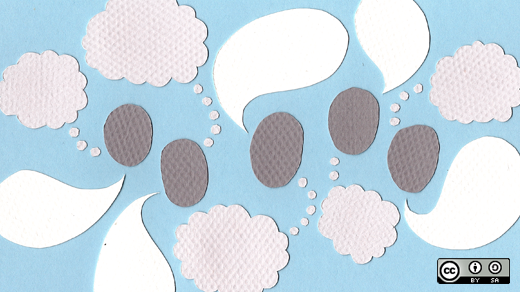Randi Harper has been a FreeBSD src committer, a DevOps engineer, and a FLOSS Weekly co-host. Recently, she's taken on a new role: target of sustained harassment. Randi met the harassment head-on and began developing tools to make the Internet a less hostile place. Her new organization, the Online Abuse Prevention Initiative, seeks to reduce online abuse through analysis, tools, and cooperative efforts.
As part of our OSCON Speaker Interview series, Randi talked to us about online abuse and her upcoming talk Open sourcing anti-harassment tools.

How did you get involved in online harassment prevention?
I've been a target of trolls for a long time. After watching numerous women get targeted and some get bullied out of their careers entirely, I realized that this wasn't a very unique experience among women. I started being more vocal about online abuse and my personal experiences, and this turned me into more of a target for much more intense harassment.
I'm a DevOps engineer at heart, and I tend to think of most things in the terms used in my field. Much of harassment I was receiving that had a detrimental affect on my daily life had to do with volume. When dealing with social interactions, especially those that are negative, humans don't scale. One night, I wrote a script, ggautoblocker, that would help filter out the people that I knew I didn't want to talk to: Gamergate supporters. A lot of people expressed interest in this script, so I posted it online and it became a pretty big success.
Things kind of blew up overnight. I became even more of a target, if that's possible, and I started having to deal with the ways that harassment could cross over to real life, such as stalkers, SWAT attempts, pizza showing up at my apartment, and email campaigns to my employer and family.
I have the perfect personality for dealing with this: I'm stubborn and have a pretty ironclad spine. I started learning where the system fell short, and I started trying to fix it. This was bigger than what was happening to me, so it ended up becoming my full-time job. I get to help people. I really love my job.
How do you work with or around API ToS when developing harassment prevention tools?
I talk to the companies with the ToS.
Most companies don't want harassment on their platforms—shocking, I know. When people in the community step up and start leading, companies are willing to help out in any way that they can. Open source is more nimble than a large company when trying to think up interesting solutions to a problem. This is one of the many reasons having a developer community is so important.
Are you concerned that tools like ggautoblocker are a technical solution to a human problem?
Concerned? Not really. Social problems are really hard and really big, so most people don't want to tackle them. Issues stagnate and get worse. Code won't solve everything. Code won't save the world—at least not by itself. However, code can make us examine some of the social problems from a point of view where we look to make small changes and influence our environment. It makes problem solving more accessible and provides a mechanism in which we can help. That's huge.
OSCON'S official stance is "Don't feed the trolls." You've said that ignoring harassment only allows for more victimization. How can communities strike a balance between starving trolls of attention while still standing up for victims?
Not feeding the trolls isn't the same thing as ignoring harassment. "Don't feed the trolls" has often been said to be a silencing mechanism, but I don't really think that's true, nor do I think that we should classify online harassment as trolling.
OSCON has done well. They are giving support to the targets of harassment as well as making a statement saying that further abuse isn't welcome. They are acknowledging the problem in a way that doesn't give the perpetrators the attention for which they are looking.
What can community leaders do to make their communities welcoming?
Have a well-written code of conduct that has been reviewed by external diversity advocates, and actually enforce it. Every community leader should read about the missing stair. Talk to people inside your community on a regular basis about how they feel things could be improved. Talk to outsiders to see what their impression of your community might be. Don't tolerate bullshit. Have established mechanisms for people that want to report behavior that makes them feel unwelcome, and constantly review those mechanisms to see if they could be better.
Speaker Interview
This article is part of the Speaker Interview Series for OSCON 2015. OSCON is everything open source—the full stack, with all of the languages, tools, frameworks, and best practices that you use in your work every day. OSCON 2015 will be held July 20-24 in Portland, Oregon.






11 Comments